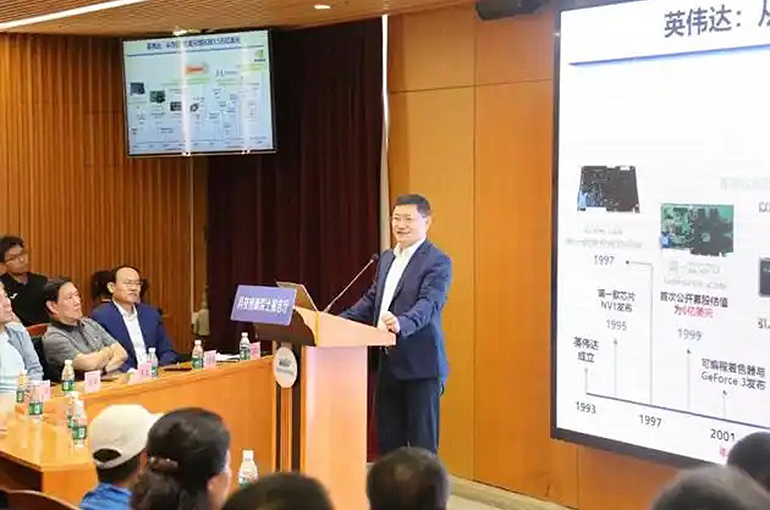 Brain Chip Implants Must Ensure Human Control of Machines Amid AI Risks, Chinese Academician Says
Brain Chip Implants Must Ensure Human Control of Machines Amid AI Risks, Chinese Academician Says(Yicai) July 2 -- Brain-computer interface systems must guarantee that users control machines with their minds, considering the risks associated with artificial intelligence, according to an academician at the Chinese Academy of Sciences.
BCI technology is a crucial means to mastering the highest form of future AI and is a key path to addressing significant medical needs, Zheng Hairong, who is also vice president of Nanjing University, recently said.
AI will evolve from "data intelligence to physical intelligence to biological intelligence," with the last one achieved through BCI tech, enabling a deep integration of human and machine intelligence, Zheng noted. This will lead to the construction of non-invasive inter-brain communication, becoming the leading medium for free information exchange, he added.
However, Zheng remains cautious about the invasive BCI promoted by Elon Musk's Neuralink, believing that the core challenge faced by invasive electrodes lies in biocompatibility because the human brain can produce rejection responses to implanted foreign objects, leading to a decline in electrode performance or even failure. Therefore, developing non-invasive tech that does not require open brain surgery and has higher biological safety is an essential research direction and ideal goal, he said.
One of the core goals of BCI tech is to deeply analyze the functional characteristics of the brain, especially the neural mechanisms related to diseases, Zheng said. For example, there is hope to assist stroke patients or individuals with blindness in rebuilding motor or sensory functions that have been impaired due to illness, he pointed out.
The next generation of breakthroughs in BCI relies on developing new types of electrode materials and devices and requires advancements in precise decoding and translation tech for complex neural information, efficient and secure "writing" tech, and other key areas, Zheng noted.
Healthcare, education, and smart driving are the areas that most need BCI, according to Zheng. The tech will likely first see breakthroughs in medical rehabilitation, such as assisting people with visual and auditory impairments and stroke survivors in regaining their vision, hearing, and motor functions, he added.
Editor: Martin Kadiev